Learning to Dive, Staying Proficient, and Building a Lifetime of Skills Underwater
Article by Thomas Powell
Around the world, individuals, friends, couples, and families often look for new and exciting activities. Some take to the skies with parachutes, others hike through rugged trails, while many gather for something as simple as a weekly game night. Among these countless options lies a category that some colleges and recreation programs refer to as life-sports, activities that a person can learn, develop, and continue to enjoy throughout a lifetime. One such activity, perhaps the most unique of them all, is scuba diving.
Unlike many hobbies, scuba diving is more than just a weekend thrill. It’s an adventure that combines physical skills, technical knowledge, and the promise of discovery. It’s also an activity that requires ongoing practice and a commitment to maintaining proficiency. If you’ve ever considered learning to dive, or if you’re already a diver who hasn’t been in the water for a while, now is the perfect time to think about how diving can enrich your life and how you can keep your skills sharp.
Why Learn to Dive? Seven Compelling Reasons
1- Adventure at Every Turn
Over 70% of the Earth is covered in water, which means the odds are high that scuba diving can take you places you’ve never imagined. For some, this might mean a tropical reef teeming with life. For others, it could be exploring deep wrecks or winding through mysterious underwater cave systems. With every new certification or specialty, the door opens wider to adventure and excitement.
2- Relaxation and Stress Relief
Life on land comes with constant weight, literally and figuratively. Underwater, divers experience near weightlessness and an escape from phones, meetings, and everyday noise. Many divers describe their time below the surface as peaceful, even meditative. It’s a release from the daily grind that few other activities can provide.
3- The Chance to Explore New Places
From freshwater springs to coral reefs, diving transforms the way we experience water. Instead of gazing at the surface or peering through snorkeling gear, scuba divers get to immerse themselves fully in the underwater world.
4- Encounters with Marine Life
Scuba diving takes you beyond aquariums and glass tanks. Imagine swimming alongside graceful rays, curious sea turtles, or a school of vibrant reef fish. These are moments of connection with nature that few other sports offer.
5- New Friendships and Community
Divers are rarely alone. The community surrounding diving is welcoming, enthusiastic, and eager to share stories. Dive trips often turn into lifelong friendships forged by shared adventure.
6- Getting Outdoors and Active
Scuba diving naturally draws people outside. Whether exploring local quarries, traveling to exotic destinations, or simply loading up the car for a weekend dive, the sport promotes activity, fitness, and family fun.
7- For You
Most importantly, scuba diving is something you should do for yourself. It’s a hobby that challenges, excites, and rewards those who pursue it out of genuine passion. Diving is not about checking off a list—it’s about embracing an experience that can make you smile for years to come.
Staying Proficient: The Importance of Practice
Learning to dive is just the beginning. Like any life-sport, proficiency comes from continued practice and engagement. Skills can deteriorate over time, and being “rusty” underwater isn’t just inconvenient, it can affect safety and enjoyment.
Many divers step away from the sport due to life events, health concerns, or other priorities. When they return, they often find themselves anxious, unsure, or even resistant to refreshing their skills. Yet, admitting that our abilities need polishing is not a weakness, it’s a responsible choice.
Inactive Diver or refresher programs exist to help people rebuild confidence and muscle memory. These sessions revisit core skills, introduce updated techniques, and help divers adjust to changes in equipment and standards. Instructors often find that these courses spark renewed excitement in students who rediscover their love for the sport.
Six Practical Tips for Improving and Conserving Air
One common challenge for new divers is gas consumption. Many worry about being “air hogs” compared to their more experienced buddies. The truth is that efficient breathing is something that develops with time and practice. Here are six key ways to improve:
- Experience Matters – Simply spending more time underwater makes you more comfortable, which naturally lowers gas consumption.
- Relax and Focus on Buoyancy – Finding neutral buoyancy reduces the need for constant movement, leading to steadier breathing.
- Reduce Excess Movement – Swimming efficiently with your legs, not your arms, conserves energy and air.
- Work on Trim and Weighting – Proper positioning and streamlined gear minimize resistance and help you glide with less effort.
- Stay Fit and Warm – Good physical fitness and proper thermal protection reduce oxygen demands and improve comfort.
- Dive Shallow When Possible – Air is consumed faster at depth. Staying shallower gives you more time to relax and practice.
What is the big takeaway? Don’t stress about air consumption. Improvement comes gradually, and every dive is an opportunity to refine your skills.
Happiness, Skills, and Safety
Ultimately, scuba diving is about enjoyment. People sign up for their first open water course because they are curious and excited. As professionals and as fellow divers, it’s our job to nurture that excitement and ensure divers leave the water feeling confident and happy.
This means courses must balance instruction with value. Students need time to practice buoyancy, emergency procedures, and underwater navigation. Rushing through skills diminishes confidence and can discourage new divers from continuing. Conversely, patient teaching and supportive practice sessions help divers build lasting comfort.
Safety is always paramount. Class size, training environment, and instructor attention all influence how well students absorb skills. Proper planning and adaptation allow divers to train safely, reduce risk, and gain more value from their time in the water. When divers feel competent, they are more likely to continue diving, seek additional training, and become ambassadors for the sport.
A Lifetime of Diving
Scuba diving is not just something you check off a bucket list. It’s a pathway to lifelong adventure, discovery, and personal growth. From that first breath underwater to advanced specialties, from managing air consumption to refreshing rusty skills, every step is a chance to improve.
The most important thing to remember is this: diving is a sport you can enjoy for life—but only if you keep practicing, keep learning, and keep diving.
So, the next time you’re searching for something new, something to do with friends, family, or even just for yourself, consider scuba diving. It may not just be another activity. It may be the one that keeps you curious, challenged, and smiling for years to come.







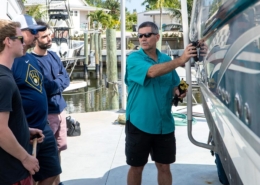
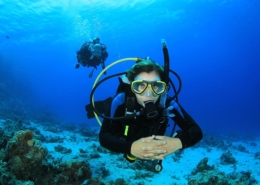
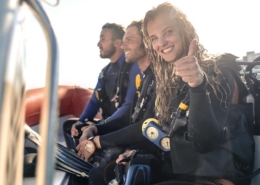
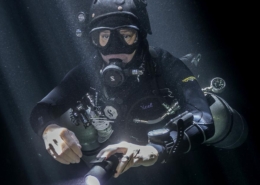
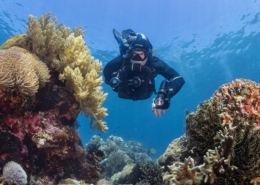
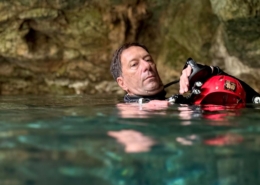
Leave a Reply
Want to join the discussion?Feel free to contribute!